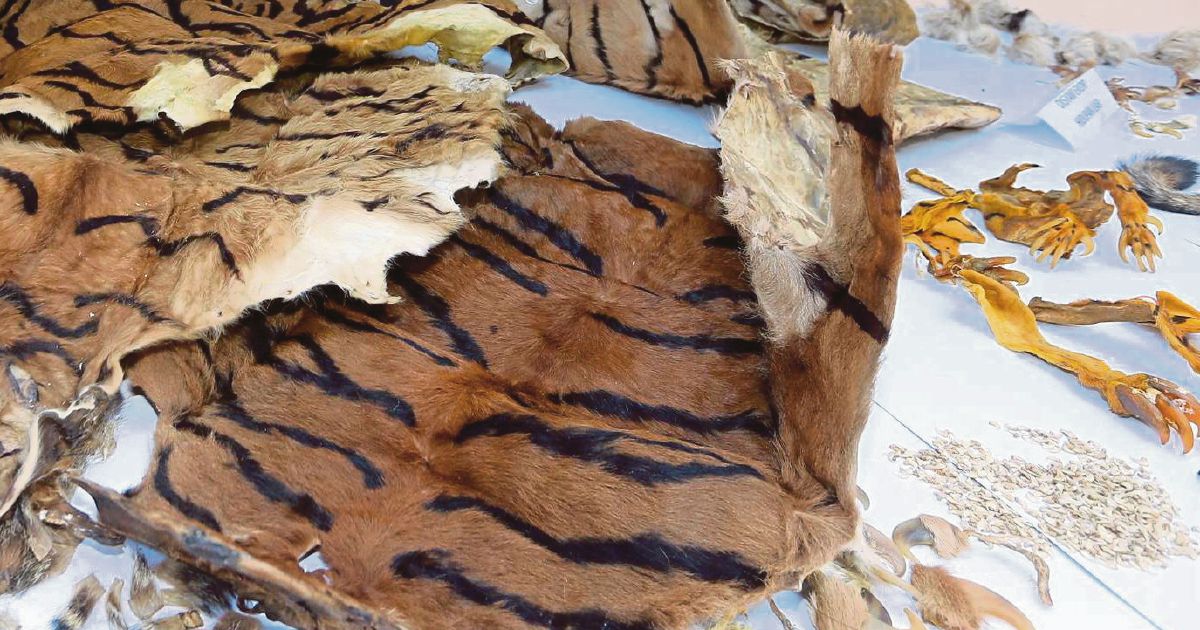KUALA LUMPUR: Malaysia is in the crosshairs of organised, cross-border poaching syndicates fuelled by “serious money”, police have warned.
Federal Internal Security and Public Order Department director Datuk Seri Azmi Abu Kassim, whose unit spearheads the fight against wildlife crime, said these syndicates leverage strong local networks — Malaysians who provide supplies, transport and insider knowledge of the terrain.
Probes into the discoveries of animals, alive or dead — as in the recent case of a tiger carcass found in the boot of a car — often uncover links to organised crime networks traced to the Indochina region.
“They collect the animals and funnel them to traffickers who already use the same routes for drugs and arms,” Azmi told the New Straits Times, adding that local hunters were tasked with finding the highly sought-after wildlife.
Azmi said some poachers were based in neighbouring countries but relied heavily on Malaysians for logistics, while others were home-grown operators poaching for bushmeat or the pet trade.
RISING ARRESTS AND SEIZURES
Azmi said last year, police, through various agencies including the Wildlife Crime Bureau/Special Investigations and Intelligence, General Operations Force, Marine Police and Federal Reserve Unit, solved 203 cases.
These cases saw the arrests of 228 suspects and seized assets worth more than RM24 million.
“Up to last month, authorities have recorded 186 cases, arrested 201 people and seized assets valued at RM149 million — a staggering six-fold increase in value compared to last year.
“These figures tell you poaching is no longer a small-scale crime. It is organised, cross-border and backed by serious money,” Azmi stressed.
He said national parks and protected forests remain the biggest targets because of their high populations of endangered species.
“Protected areas draw poachers like magnets. Tigers, hornbills, pangolins and exotic reptiles are prime targets.
“The problem is compounded by accessibility and the sheer size of our forested areas,” he said, adding that Malaysia’s forest cover spanned nearly 20 million hectares across Peninsular Malaysia, Sabah and Sarawak, making enforcement a for-midable challenge.
Azmi said police had identified syndicates that not only sourced wildlife in Malaysia, but also used the country as a transit hub.
“Wildlife traffickers exploit these routes. That is why intelligence-sharing and regional cooperation are critical,” he said, adding that Malaysia worked closely with Interpol’s Wildlife Crime Working Group, Aseanpol, and the Department of Wildlife and National Parks to coordinate joint actions under Operasi Bersepadu Khazanah.
Azmi cautioned that wildlife crime must no longer be treated as a niche conservation issue.
“This is a national security and economic issue.
“Syndicates that profit from wildlife crime are often the same groups involved in drugs, arms, and money laundering.
” If we fail, our biodiversity will vanish and with it, part of our national identity,” he said.
© New Straits Times Press (M) Bhd






